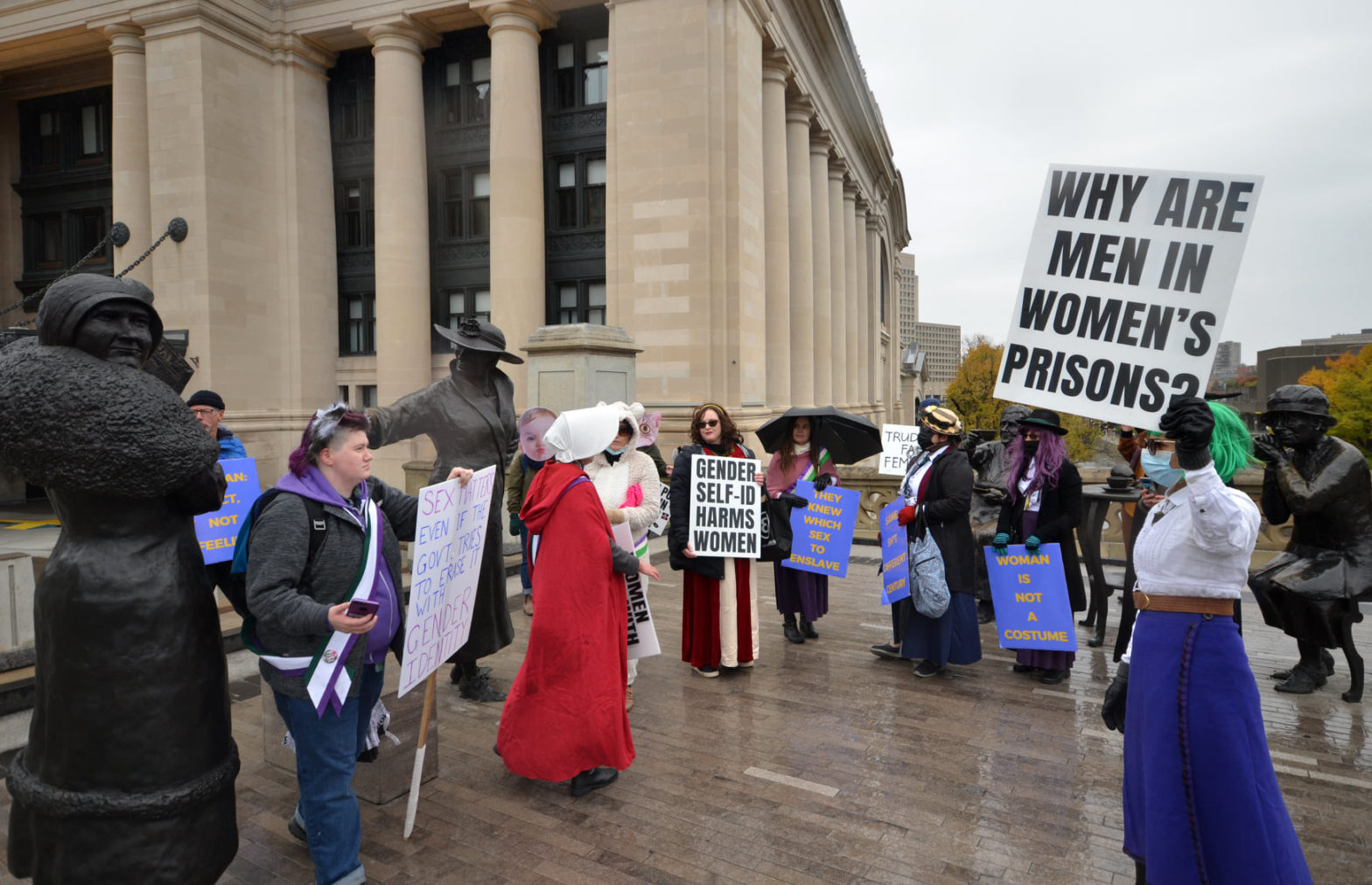In the past five years, I’ve documented two new forms of transphobic organizing in Canada:
- 2016 – 2019: A rise in violent anti-trans and anti-gay nationalist groups
- 2019 – Present: A wave of anti-trans groups under the pretence of women and gay rights
This is in addition to the organizing by various Conservative parties and Christian entities who have long tried to eradicate gender and sexual diversity. In recent years the nationalist groups have not been able to physically intimidate queer people in their own spaces as a result of the pandemic and the cessation of in-person events, with some exceptions. So I want to focus instead on this new wave of activism that has co-opted the language of women’s and gay rights for prejudicial ends.
Calling themselves at times “gender critical” or TERFs (trans-exclusionary radical feminists), these individuals have been getting a lot of attention from trans people as of late, myself included. They want to be seen: they’re quite active on Twitter, they have permanent presence in Canadian newspapers, our libraries distribute their propaganda, they have book deals, they rip down supportive messaging and put up their own, they protest on the street. Some have found me and left comments on my blog.
Their arguments are the same as those that have been made for generations about trans and gay people: that ours isn’t a legitimate form of diversity but rather we’re sexual deviants, and that our deviance makes us a threat in gendered spaces and to impressionable children.
Despite all of their activity, I don’t believe this new cohort of bigots is that much of a threat. I regard them as impotent and a distraction. Much like trolls, their conduct elicits strong emotional reactions, but it’s disproportionate to the power they have. For one, their numbers are actually quite few, but they’re so self-referential – populating each other’s Twitter groups, amplifying each other in print – that they appear more numerous. For another, even their most prominent thought leaders have a negligible impact on where people stand in Canada. Those who are anti-trans have always held these views; any recent adoption of language around sex-based rights is merely a convenience to launder their bigotry and in its absence they would have something else. Finally, TERFs and GCs are largely invisible to the general populace because of where they are principally active such as legacy media, Twitter, and the street. Oh sure, they are plainly visible to gender diverse people, but for the rest they’re too obscure until there’s a “controversy”.
I think part of the alarm has to do with how TERF talking points dominate the discourse around trans rights in the UK. Our context is not the same. In the UK, it was illegal to “promote homosexuality” until 2003. Nor is it the same as the United-States, where Texas just weaponized child protective services to rip trans kids from supportive families and place them into the care of people who will reject them.
For Canada, the danger of regressing back comes most from conservative politicians. Public opinion and the the corporate world are increasingly accepting. Institutions are slowly recognizing transphobia to be harmful. It’s lawmakers who’ve architected roll backs such as:
- Ontario stopping coverage for gender affirming surgeries in 1998.
- Ontario removing sex-ed inclusive of gender identity and sexual orientation in 2018.
- Alberta proposing to force outing queer & trans students to parents in 2018.
- Quebec proposing to require sterilizing surgeries to update gender markers on identity documents in 2021.
In justifying these rollbacks politicians might favourably cite the arguments of hate groups. TERFs/GCs would fill that role today, but their beliefs are immaterial: conservatives would have brought in whoever is most accessible at the time.
My point is that when it comes to TERFs and GCs in Canada, the context is important. So if the context is lobbying for policy and legislative change, focusing too much on the trolls detracts from the task. If the context is wanting to counter aggressions experienced by gender diverse people, then handling trolls is absolutely part of that conversation.
